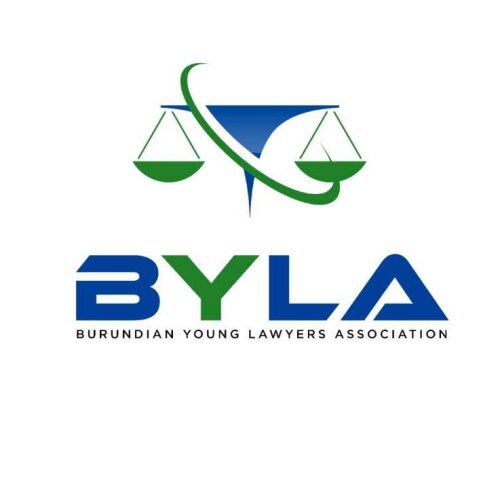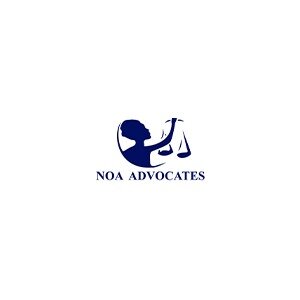Best Corporate Governance Lawyers in Bujumbura
Share your needs with us, get contacted by law firms.
Free. Takes 2 min.
List of the best lawyers in Bujumbura, Burundi
About Corporate Governance Law in Bujumbura, Burundi
Corporate governance refers to the system by which companies are directed and controlled. In Bujumbura, Burundi, corporate governance involves the structures, processes, and legal frameworks that guide how companies are managed, how decisions are made, and how they are held accountable to stakeholders. This includes compliance with national laws, standards for leadership and decision-making, the role of the board of directors, the rights and responsibilities of shareholders, and processes for transparency and disclosure. Corporate governance in Bujumbura continues to evolve as businesses expand and regulations adapt to international standards and local needs.
Why You May Need a Lawyer
There are various situations where seeking the assistance of a qualified corporate governance lawyer is essential in Bujumbura. Common scenarios include setting up a new company, restructuring an existing business, merging with or acquiring another company, resolving shareholder disputes, or ensuring compliance with local and international regulations. Legal professionals can help draft essential documents such as articles of association, corporate bylaws, shareholder agreements, and codes of conduct. Attorneys also provide guidance on ethical responsibilities, conflict of interest management, and can represent your interests in regulatory investigations or before judicial bodies in cases of non-compliance.
Local Laws Overview
In Burundi, corporate governance is primarily regulated by the OHADA Uniform Act on Commercial Companies and Economic Interest Groups, which sets out key requirements for company formation, management, and oversight. The National Commercial Code also plays a significant role, especially with provisions on company types, director duties, and shareholder rights. Key local law aspects to consider include:
- Mandatory registration and legal compliance for all companies operating in Bujumbura.
- Requirement for properly drafted company statutes and mandatory corporate organs like the board of directors and the general meeting of shareholders.
- Rules on appointment, powers, duties, and liabilities of directors and officers.
- Clear guidelines on shareholder rights, minority protections, and dispute resolution procedures.
- Financial disclosure, regular auditing, and transparent reporting obligations for certain companies, notably public companies.
- Anti-corruption, ethical conduct, and internal control measures for governance bodies.
It is crucial for companies to stay updated on amendments to these laws as the legal environment in Bujumbura evolves with economic development and regional integration.
Frequently Asked Questions
What is corporate governance and why is it important in Burundi?
Corporate governance establishes a framework for ethical decision-making, accountability, and efficient management. In Burundi, this is crucial for building trust with investors, stakeholders, and regulatory bodies, especially as the business landscape grows.
Which laws regulate corporate governance in Bujumbura?
Corporate governance in Bujumbura is mainly regulated by the OHADA Uniform Act, the National Commercial Code, and various sector-specific regulations.
Do all companies in Bujumbura have to follow the same corporate governance rules?
No, governance rules can vary depending on the company type, size, sector, and whether the company is public or private. However, some core principles apply universally, such as director duties and shareholder rights.
What are the responsibilities of the board of directors?
The board of directors oversees company strategy, ensures compliance with legal obligations, makes key company decisions, and monitors executive management. They are also responsible for safeguarding shareholder interests.
How can shareholders protect their interests?
Shareholders can protect their interests by actively participating in general meetings, exercising voting rights, inspecting company documents, and seeking legal recourse in cases of mismanagement or abuse.
What documents are required to ensure good corporate governance?
Key documents include a company’s articles of association, internal regulations, board charters, shareholder agreements, and codes of ethics or conduct.
What are the consequences of failing to comply with corporate governance laws?
Non-compliance can result in fines, suspension of company activities, personal liability for directors, loss of reputation, or even criminal prosecution for serious breaches.
Can foreign investors or shareholders have the same rights as locals in corporate governance?
Yes, under OHADA rules and local law, foreign investors are generally granted the same rights and protections unless specified otherwise in sector-specific regulations.
How is corruption addressed in corporate governance practice?
Burundian law requires companies to adopt anti-corruption policies, ensure transparency in operations, and implement internal controls to detect and prevent unethical practices.
How can a lawyer help with corporate governance issues?
A lawyer can provide guidance on legal requirements, help structure and document proper governance systems, represent you in disputes, and ensure your company operates in compliance with the law.
Additional Resources
For those seeking further support or information on corporate governance in Bujumbura, the following organizations and resources may be helpful:
- The Burundi Investment Promotion Authority
- The National Chamber of Commerce and Industry of Burundi
- OHADA National Commission of Burundi
- Ministry of Commerce, Transport, Industry, and Tourism
- Bujumbura Bar Association or local law firms specializing in corporate law
These bodies provide guidance, regulatory updates, and access to professional legal advisors.
Next Steps
If you require legal assistance with a corporate governance matter in Bujumbura, start by gathering all relevant documentation regarding your company’s governance structure, regulatory filings, and operational records. Identify your specific legal needs, such as incorporation, board meetings, or dispute resolution. Contact a qualified corporate lawyer or legal advisor with experience in Burundian corporate and commercial law. Consider consulting with the above-mentioned organizations for further information or to verify lawyer credentials. Proper legal guidance can help you ensure your company remains compliant, minimizes risks, and upholds the best standards of governance.
Lawzana helps you find the best lawyers and law firms in Bujumbura through a curated and pre-screened list of qualified legal professionals. Our platform offers rankings and detailed profiles of attorneys and law firms, allowing you to compare based on practice areas, including Corporate Governance, experience, and client feedback.
Each profile includes a description of the firm's areas of practice, client reviews, team members and partners, year of establishment, spoken languages, office locations, contact information, social media presence, and any published articles or resources. Most firms on our platform speak English and are experienced in both local and international legal matters.
Get a quote from top-rated law firms in Bujumbura, Burundi — quickly, securely, and without unnecessary hassle.
Disclaimer:
The information provided on this page is for general informational purposes only and does not constitute legal advice. While we strive to ensure the accuracy and relevance of the content, legal information may change over time, and interpretations of the law can vary. You should always consult with a qualified legal professional for advice specific to your situation.
We disclaim all liability for actions taken or not taken based on the content of this page. If you believe any information is incorrect or outdated, please contact us, and we will review and update it where appropriate.













